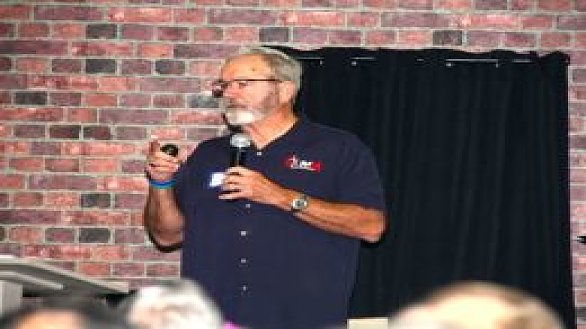“In most cases, the gap that exists between knowing and doing is far greater than the gap between ignorance and knowing.”
Ken Blanchard, author of Servant Leadership and The One Minute Manager
When we examine this statement as it relates to training and equipping church leaders, we understand that although there is an abundance of training going on today, most of it is not put into action that transforms lives.
While some knowledge is certainly created from what was once ignorance, this initial gain of knowledge from information-gathering training will be short-lived if not expanded into transformational change through the doing step.
Training is definitely needed for someone new to a role, task, job or function, as we should not expect people to be able to “do what they don’t know.”
Leaders need to create the environment and provide resources that will equip learners to effectively and efficiently perform their new or revised task or function.
After the training event is complete, the responsibility of taking knowing to the doing stage shifts to the learner.
While leadership must be willing and equipped to provide support to this continued developmental process, the commitment to practice the doing of the new behavior lies mostly with the learner.
Do not merely listen to the word, and so deceive yourselves. Do what it says. Anyone who listens to the word but does not do what it says is like someone who looks at his face in a mirror and after looking at himself, goes away and immediately forgets what he looks like. But whoever looks intently into the perfect law that gives freedom, and continues in it—not forgetting what they have heard, but doing it—they will be blessed in what they do.
James 1:22-25
It is after the training event that the trouble usually begins.
Fully one third of the training that creates knowing is never taken to the doing stage for three reasons.
1. Some students do not attempt to apply training they experienced because they fail to see a connection between the new information and their current role or function within the organization. They deem the training as irrelevant and dismiss it immediately.
2. Some students want to take the knowing into also doing but organization leaders deny them the opportunities. They are unwilling to risk the possible learning curve that may be present by applying this new information.
3. Some learners struggle to implement the information because no one is present to observe and provide feedback––to affirm or redirect these new actions. If a learner is not directed and supported by performance coaching their success in in implementing information will be inconsistent at best, and defeating at worse.
To reduce this gap, there must be opportunities for learners to practice the application of the desired change. Coaches need to observe and provide feedback.
I leave you with the following to further state my case for attacking the knowing-doing gap:
Training is “the act, process or art of someone imparting information of a knowledge or skill” while learning is “the processing of information we encounter which leads to changes or increases in our knowledge and abilities.”
Be about the learning,
Jim Boesch, deployed staff member
General Commission on UM Men
Jim facilitates equipping workshops for “Lead like Jesus,” servant leadership training; “Understanding Men's Ministry,” discipling leadership training; and “Equipping Equippers” learning-facilitation training. You may host any of these workshops in your area by calling him (407-721-0416) or by e-mail.
jimboesch68@gmail.com
This article is part of a bimonthly e-letter to leaders of UM Men. Other articles in the February letter may be found at:
http://www.gcumm.org/news/2015/02-03/spiritually-daring-men-by-bishop-james-swanson
http://www.gcumm.org/news/2015/02-03/who-mentored-you-by-gil-hanke
http://www.gcumm.org/news/2015/02-03/itrsquos-all-about-the-offense-by-dan-ramsey
http://www.gcumm.org/news/2015/02-03/faith-and-leaders-by-larry-coppock
http://www.gcumm.org/news/2015/02-04/are-we-really-making-disciples-by-mark-lubbock.
http://www.gcumm.org/news/2015/02-04/what-about-bob-by-mark-dehority


